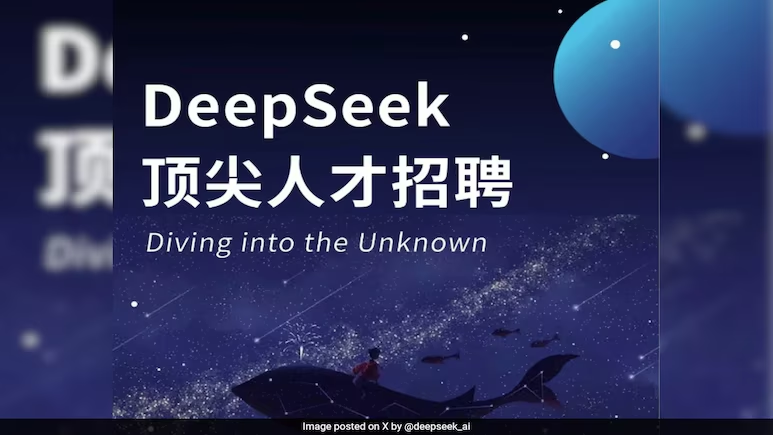Physical Address
304 North Cardinal St.
Dorchester Center, MA 02124
Physical Address
304 North Cardinal St.
Dorchester Center, MA 02124

Discover DeepSeek AI, the latest breakthrough in artificial intelligence! Learn how this innovative technology simplifies tasks, saves time, and improves everyday life for everyone, even those new to AI.
The artificial intelligence (AI) landscape is witnessing a seismic shift with the rise of DeepSeek, a Chinese AI startup that has captured global attention. Founded in 2023 by entrepreneur Liang Wenfeng, the company has managed to challenge industry giants like OpenAI and Google with its cutting-edge model, DeepSeek-R1. But what makes DeepSeek’s rise so significant? Let’s dive into the details.
DeepSeek-R1 has set a new benchmark in AI development by achieving performance parity with top-tier models like OpenAI’s ChatGPT. What’s remarkable is how it achieved this using fewer resources and lower costs. Unlike its competitors, which rely on advanced infrastructure and high-cost chips, DeepSeek utilized Nvidia H800 chips, a less advanced alternative restricted by U.S. export policies to China.
This achievement challenges the narrative that success in AI development requires extravagant budgets and cutting-edge hardware. It also underscores the potential for innovation within constrained environments, an approach that could redefine how AI technologies are built globally.
The launch of DeepSeek-R1 hasn’t just impacted the tech world; it has sent shockwaves through financial markets. Following its debut, global tech stocks experienced a dramatic downturn:
This reaction highlights the market’s acknowledgment of DeepSeek as a legitimate competitor, capable of disrupting the dominance of U.S. tech giants.
DeepSeek’s AI assistant quickly climbed to the top of Apple’s App Store, overtaking established players. The model’s open-source approach and affordability make it a viable option for businesses and individuals alike, fostering inclusivity in AI usage. This accessibility has ignited debates about the sustainability of massive infrastructure investments made by U.S. tech companies.
Despite its technical achievements, DeepSeek-R1 has faced criticism for its responses to politically sensitive topics. The AI provides answers that align with the Chinese government’s perspectives, particularly on issues like human rights and Taiwan. This raises important questions about AI ethics, censorship, and bias in systems influenced by governmental narratives.
Some experts have likened DeepSeek’s emergence to a modern-day “Sputnik moment” for AI. The original Sputnik launch symbolized a dramatic shift in the space race, sparking innovation and competition globally. Similarly, DeepSeek has challenged the status quo in AI, pushing competitors to reconsider their strategies and priorities.
DeepSeek’s success story illustrates that the AI landscape is no longer dominated by a few well-funded players. By leveraging efficiency, innovation, and inclusivity, the company has positioned itself as a formidable competitor. However, its rise also highlights the importance of addressing ethical implications in AI deployment.
As the global AI race intensifies, one thing is clear: the future of AI will be shaped not just by technical prowess but also by the values and principles that guide its development. DeepSeek has set the stage for a new era in AI—one that demands both innovation and responsibility.